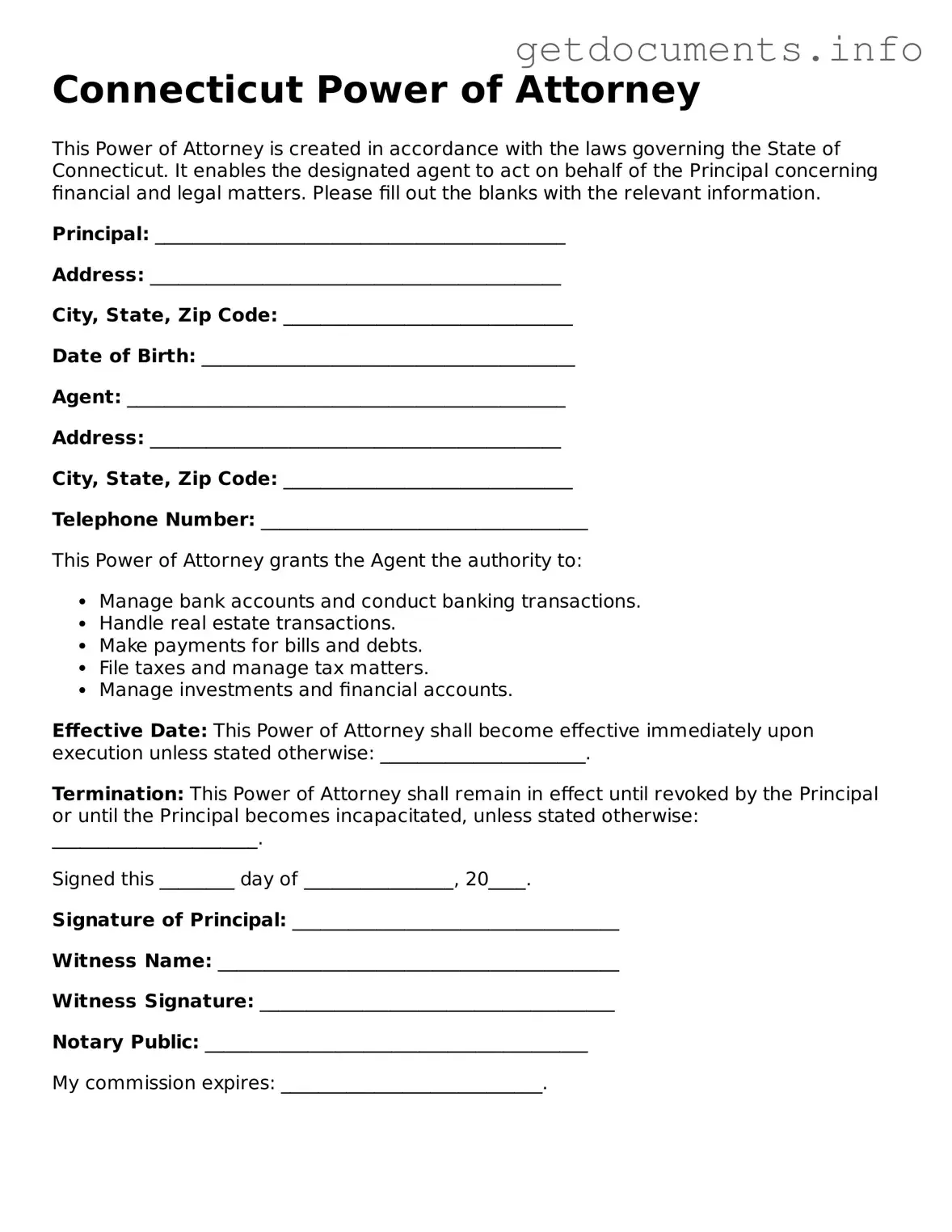Free Power of Attorney Template for Connecticut
A Power of Attorney form in Connecticut is a legal document that allows one person to grant another the authority to make decisions on their behalf, particularly regarding financial and medical matters. This powerful tool can provide peace of mind, ensuring that your wishes are honored even if you become unable to make decisions for yourself. To take the first step in securing your future, consider filling out the Power of Attorney form by clicking the button below.
Access Power of Attorney Editor

Free Power of Attorney Template for Connecticut
Access Power of Attorney Editor
Got places to be? Complete the form fast
Fill out Power of Attorney online and avoid printing or scanning.
Access Power of Attorney Editor
or
⇩ PDF File
